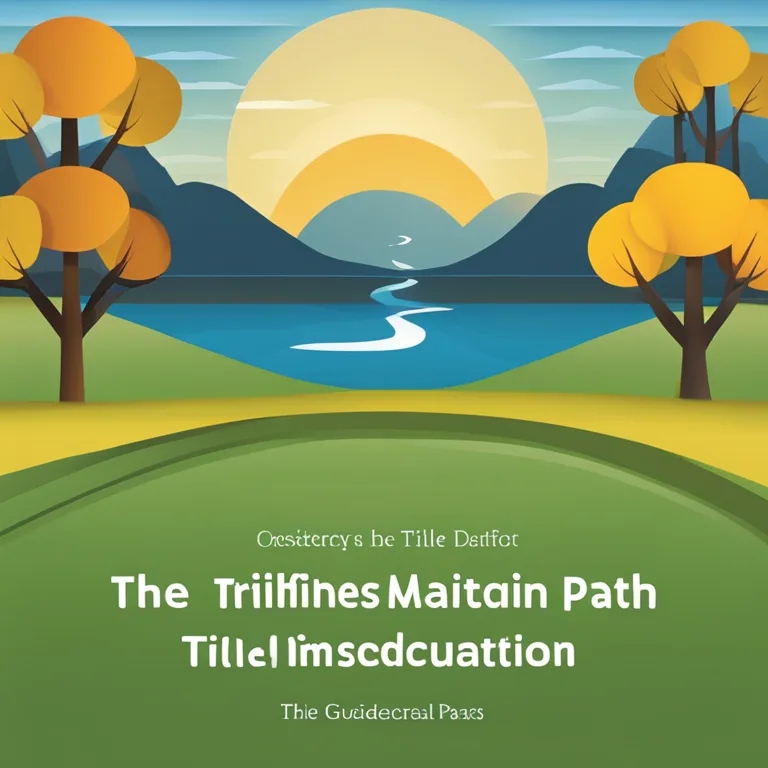
Mindfulness Meditation & Emotional Balance
Discover how mindfulness meditation can aid in managing emotions to cultivate a more balanced state of mind.
article by Hina Kurosawa
A Journey to Emotional Equilibrium
Meditation has long been hailed as a pathway to serenity, but its impact on emotional health has now taken center stage. Mindfulness meditation, in particular, provides us with tools to balance our inner emotional scales. It's about observing our feelings without judgment and learning from them. Through conscious awareness, individuals can navigate the tumultuous seas of their emotions with greater ease. This article delves into how integrating mindfulness into your daily routine can transform your relationship with your feelings, promoting emotional well-being in a fast-paced, ever-changing world.

The Pillars of Mindfulness Meditation
Mindfulness meditation rests on two fundamental pillars: awareness and acceptance. Awareness is about tuning into your moment-to-moment experiences, keenly observing your thoughts, sensations, and emotions. Acceptance follows closely, inviting us to embrace these experiences without resistance or suppression. This blend of acknowledgment and non-judgment equips individuals to face emotional upswells with graceful endurance. Through practice, the meditator learns to witness their emotional responses with clarity and gentleness, paving the way for authentic self-compassion and understanding.

Regulating Emotional Tides
Emotional regulation is a skill honed through mindfulness meditation. It's not about controlling emotions but rather understanding their transient nature. By regularly engaging in meditative practices, individuals become adept at recognizing emotional patterns. This heightened awareness creates a space between stimulus and response, giving the practitioner the opportunity to choose how to act. This gap is where emotional freedom lies—the chance to select responses aligned with one’s values rather than being swept away by impulsive reactions.

The Practitioner's Path: Starting Mindfulness Meditation
Beginning a mindfulness meditation practice can be as simple as dedicating a few minutes each day to stillness and observation. Starting with guided sessions can provide a framework for newcomers, while silent meditation might appeal to experienced practitioners. The key is consistency and a non-striving approach—allowing the process to unfold naturally, without any expectation of immediate outcomes. As you progress, you'll notice a subtle yet profound shift in your emotional landscape, leading to improved mental resilience and inner calm.

Scientific Support and Cultural Adaptation
Contemporary research affirms the benefits of mindfulness meditation for emotional health. Neuroscientific studies demonstrate alterations in brain regions associated with emotional regulation following regular mindfulness practice. Moreover, mindfulness has transcended its traditional roots and adapted to fit various cultural contexts, making it accessible to a broader audience. In today’s digital age, apps and online platforms offer guided mindfulness sessions, which bring this ancient practice right into the palms of people worldwide.
Challenges and Support Systems
Despite its numerous benefits, some find the practice challenging, experiencing resistance or confronting difficult emotions. It's vital to approach these challenges with patience and seek support when needed. Communities, both in-person and virtual, can offer guidance and shared experiences, while professional mental health practitioners can provide tailored strategies. Remember, embarking on the path of mindfulness is a personal journey, one that is unique to every individual's emotional landscape.
Integrating Mindfulness in Daily Life
Incorporating mindfulness into daily life doesn't require grand gestures. It can be as simple as taking a mindful walk, savoring a meal, or practicing breath awareness during breaks. The essence lies in the conscious attention given to ordinary activities, transforming them into moments of presence. As you weave mindfulness into the fabric of your day, you’ll find your emotional responses become more moderate and manageable, reflecting the inner balance you’ve cultivated through meditation.
Published: 1/8/2024
Modified: 1/8/2024
More predictions
Come back here soon to learn more about yourself and your future


Can Meditation Alleviate Symptoms of Depression?
Delve into the therapeutic potential of meditation for managing depression and enhancing mental well-being in this insightful article.


Mastering Meditation: Pathways to Inner Peace
Discover the transformative benefits of meditation techniques, offering a gateway to enhanced well-being and mindfulness in the modern era.


Meditation and Depression: A Path to Healing
Discover the potential of meditation as a complementary treatment for depression, delving into how mind-calming practices might offer a beacon of hope for those seeking relief.